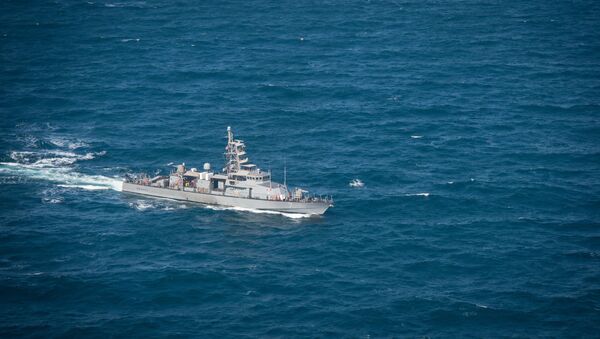Speaking ahead of a Manama security conference, in Bahrain, the home of the Navy’s Fifth Fleet, commander of American forces in the Middle East Gen. Kenneth F. McKenzie, has assumed the latest deployment of 14,000 extra US troops may not have put off Iran from plotting a major attack akin to the one against Saudi Aramco oil fields, and a drone attack in June.
“My judgment is that it is very possible they will attack again", General McKenzie said, noting that the Gulf reinforcements, including 3,000 troops sent to Saudi Arabia, are intended as a deterrent, not a move to trigger Iranian military action.
In earlier interviews he elaborated on the course he says Iran has taken:
“It’s the trajectory and the direction that they’re on", he noted in a second interview later in the week. “The attack on the oil fields in Saudi was stunning in the depth of its audaciousness", he said of an assault in September that the United States and its European allies blamed on Iran.
“I wouldn’t rule that out going forward".
Referring to the so-called “maximum pressure” sanctions policies that the US has been pursuing vis-a-vis Iran, McKenzie insisted that the Islamic Republic is “under extreme pressure", prompting it to seek to “crack the campaign” in a bid to provoke the US.
“Unfortunately, sometimes the Iranian regime has proved itself to be the bully in the neighbourhood", McKenzie remarked going on to add:
“And the only way to stand up to a bully is to do it together", he said in an apparent reference to a maritime coalition of Saudi Arabia, the Emirates, Bahrain and other US allies, set up to respond to a series of recent tanker incidents.
In the most recent demonstration of force, last week, the aircraft carrier Abraham Lincoln traversed the strategic Strait of Hormuz, the first time a US Navy carrier has cross the Persian Gulf since April.
Speaking at Saturday’s conference Mckenzie pledged America's commitment to the Gulf despite a Trump administration policy shift to cut the contingents in the Middle East.
Tanker Controversies - Cause Celebre
A whole host of maritime security concerns have been raised since multiple tanker attacks occurred in the Persian Gulf. A subsequent investigation into the attacks, vowed by a number of countries at the time of the incidents, hasn’t arrived at any clear-cut conclusions as to who or what what was behind the Gulf provocations.
Six oil tankers, from Japan, Norway, UAE, and Saudi Arabia, were attacked in two separate incidents in May and June 2019 in the area, while Iran’s Sabiti was assaulted in the Red Sea in October. The right side of the tanker sustained damage, with the holes leading to a brief oil leak that was soon stopped. The ship's operator, the National Iranian Tanker Company (NITC) concluded that the damage was likely the result of a missile attack.
While the US attributed the May and June attacks to Iran, despite the latter vehemently denying any involvement and Washington presenting no hard evidence to support the claims, the UAE, which investigated the May incident, concluded that the attack had happened at the hands of a state actor, but failed to name the culprit.
Regarding the Sabiti incident, the US didn't issue comments about the possible culprits, while Iranian President Hassan Rouhani pledged a thorough investigation into the case, assuming one or multiple state actors were behind it.
In September, the US found fault with Iran over a drone attack on a Saudi Aramco oil refinery that forced the national oil company to temporarily shut down a couple of its oil fields. In response, Tehran accused the US and its allies of switching from a policy of “maximum pressure” to that of “maximum deceit".




